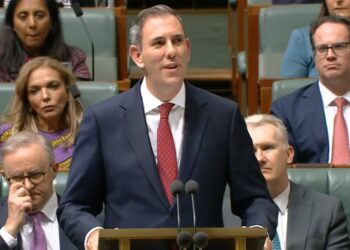MyIntegrity in Practice principal Joel Ronchi told ifa that advisers and licensees in the group’s FASEA preparation classes had expressed confusion about what their obligations were under the professional year program, which had been deprioritised relative to more urgent exam and education requirements.
“Fundamentally, licensees are overwhelmed by the entirety of the FASEA standards and the professional year has really taken a back seat relative to all other aspects, as the professional year is not necessarily a pressing issue for most,” Mr Ronchi said.
“As such, there’s not a lot of engagement in this area and some smaller licensees are flying blind in terms of what the requirements of the professional year are, who is eligible to enter a professional year and what kind of checks and balances are in place to ensure a nominated new entrant meets the requirements.”
Mr Ronchi added that licensees were unsure of whether responsibility to check a new entrant’s educational qualifications lay with them or FASEA. There was also a more general concern that smaller advice groups would now have to bear the brunt of onboarding costs for new advisers, given large institutions had largely exited the advice sector.
“There’s been good commentary around the professional year being built when the large ‘instos’ were still in the financial advice game and the expectation was that they were most likely going to carry most of the burden in developing and implementing the professional year,” he said.
“That is no longer the case and now the obligation falls to individual licensees and practices within their networks.”
In a recent webcast hosted by ifa and BT, Fortnum Private Wealth group managing director and chief executive, Neil Younger, said the dealer group had just three advisers currently going through the professional year program.
“We’ve got demand from some additional people across the network who would like to start, so we are working collaboratively with that current group,” Mr Younger said.
He believed advice practices had held back from taking on new starters under the program because of the prohibitive costs and a focus on bedding down the other FASEA standards.
“I think for a period of time advisers were looking at how do they run their own businesses and hadn’t turned their attention to thinking of new people coming in,” Mr Younger said.
“As an industry we were getting our heads around how does the program work in a practical sense, what does it cost to get people through the program, because traditionally the time frame for getting an adviser from starting into being productive in an adviser practice was shorter.
“Now it’s longer, so the cost to sustain through that period is longer and I think adviser practices have had to prepare for that at the same time.”




I can see the cost issue being a barrier to practices taking on PY rookies particularly in the current environment however prospective new entrants with recently acquired FASEA qualifications are becoming pretty disillusioned about the lack of PY opportunities and rightly question whether the industry’s ‘professional’ aspirations are still many years away. I don’t think the government will be solving this any time soon if at all.
In other professions, aren’t “apprentices” provided with some level of government support to make it affordable to bring someone new into the system and train them up?
Funny enough years ago you could actually get support on like an apprentice system
The reality is there are other priorities for both the adviser and the licensee. There are very few wishing to take on the liability of an apprentice doing their professional year.
FASEA: Financial Adviser Suppression and Extermination Authority
The reality is the FASEA code as it stands is unworkable. It’s been stated and agreed by the very people that have put it together and are enforcing it, that’s it’s not workable. Yet somehow it’s still been put into place. This would be laughable in any other industry. Adviser’s aren’t looking to not comply with whatever 12 step code of hoops the regulators want us to jump through, but how can you jump through these hoops if the people holding up the hoops, have acknowledged it’s not achievable. Please give us something practical.
You could say it’s unethical to introduce an unworkable code of ethics
In 2019 there were only 19 new advisers, so industry really does need to start focusing its attention on the professional year. However, I don’t think the program needs to be onerous or prohibitive if structured correctly. It will take time though. I advise all my clients that I work with that it is an 18 mth program once you factor in sitting and passing the exam. It also highlights the importance of making sure you hire the right talent – behavioural profiling can really help in this respect
I would seriously question the IQ of any individual entering this industry as the compliance currently stands. It simply makes no sense.
Lots of cost and no guarantees that you will have a productive adviser on your books at then end of the professional year. I would think poaching will become the major issue in that regard.
Why would an experienced adviser consider taking on the regulatory risks and costs associated with a PY candidate, when they are already drowning in regulatory risks and costs?
Why would a potential new entrant consider financial advice as a career option, when they are going to be indiscriminately persecuted by regulators for the transgressions of a minority of advisers in the past?
Surely the whole PY concept is moot.
More examples of bad policy, from the great people at FASEA. Just redo the whole code, and have actual Advisers having much more input.